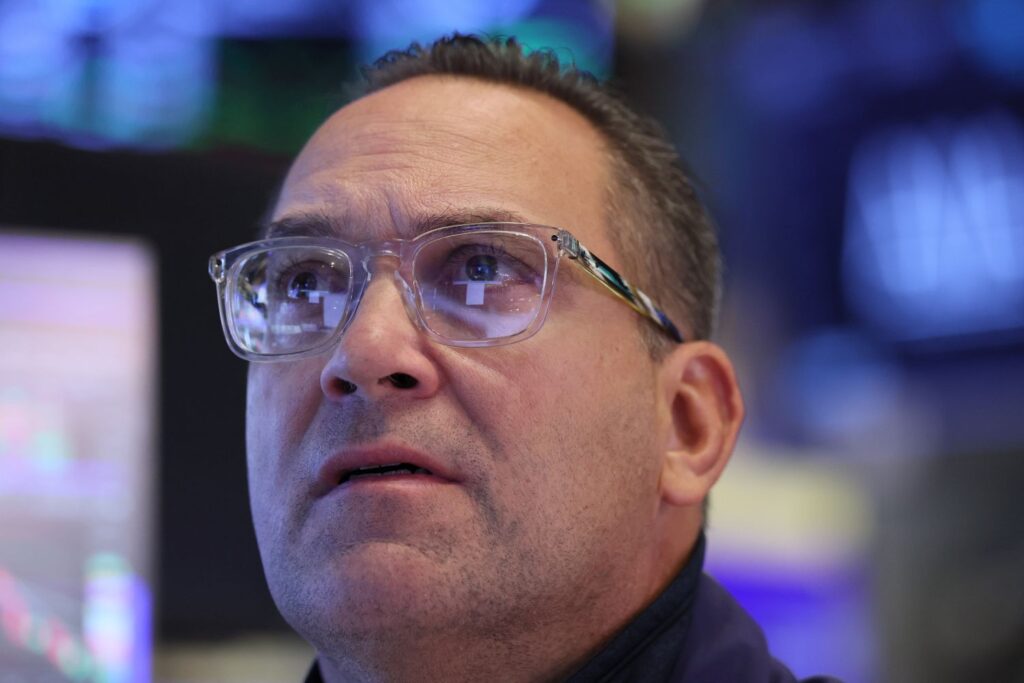Key Takeaways
- Wall Street is more anxious than it’s been since April by some measures, with concerns about an AI bubble encouraging caution heading into Nvidia’s quarterly earnings report.
- Individual investor sentiment was at its most negative since September last week, and nearly half of fund managers consider an AI bubble the biggest risk to the stock market.
Nvidia’s quarterly results are almost here, and anxiety is running high.
The Cboe Volatility Index (VIX), known as Wall Street’s Fear Index, on Tuesday ended the day just below 25, near its highest level since May, when the market was cooling off from April’s tariff tantrum. The index has risen substantially in the past week after coasting along in the mid-teens throughout the second half of the year. (It was recently a bit below 24; a reading below 20 is generally considered calm.)
And CNN’s Fear & Greed Index, which tracks seven stock-market metrics to gauge the mood on Wall Street, yesterday fell to its lowest level since mid-April. Six of the seven index inputs were flashing “Extreme Fear” on Wednesday morning, with measures of momentum and market breadth having slumped in recent weeks.
Why This Is Important
Wall Street’s mood can have as much of an impact on short-term stock performance as the health of the economy or developments with a specific business. Today investors are largely concerned with the quarterly earnings from Nvidia, due after the bell, which could substantially inform how people feel about stocks going forward.
Recent anxiety has centered on AI, with some investors worrying that tech giants are overspending on technology with uncertain commercial prospects. Others argue AI will transform nearly every industry, justifying tech’s massive investments and high stock valuations.
The AI bubble debate has been playing out for some time, but it intensified this month. Forty-five percent of fund managers surveyed by Bank of America in November said an AI bubble was the biggest tail risk facing the market, up from 33% last month and just over 10% in September. More than half of those surveyed said AI was already in a bubble.
And bullish sentiment among retail investors last week fell to its lowest level since early September, according to the Association of American Individual Investors. Bearish sentiment jumped nearly 13 percentage points, the biggest week-over-week increase since February.
The stock market faces a critical test this afternoon when Nvidia (NVDA) reports earnings. The AI chip giant’s quarterly report has become a must-watch event on Wall Street this year, with its results often treated as a proxy for AI demand and a major driver of the AI rally.
AI bubble concerns and some high-profile divestments have dragged down Nvidia’s stock this month, but expectations are still high. Analysts predict the huge amounts of capital tech companies are pouring into data centers will underpin another strong quarter for the chipmaker.

